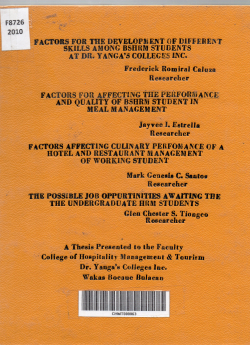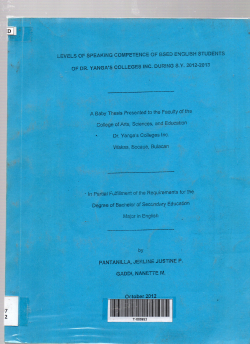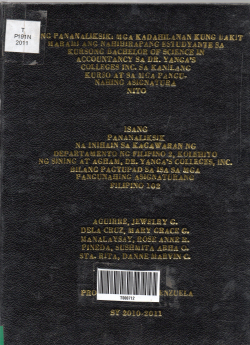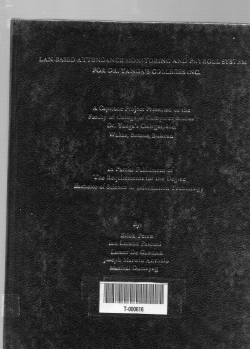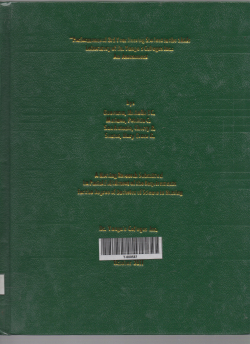The Coping Mechanisms of Selected Nursing Students to Dysmenorrhea in Dr. Yanga’s Colleges, Inc.

Type
Thesis
Authors
Category
CHS
[ Browse Items ]
Subject
coping mechanism; dysmenorrhea
Abstract
The occurrence of dysmenorrheal among female nursing students is a fact. This leads to the conduction of this research. Nursing students, being health conscious, are then obliged to employ different remedies to manage the pain. These different remedies include physical, psychological, social, nutritional and pharmaceutical management. These managements are practiced because of its palliative effects, others are practiced as avoidance to its causative factors and some use it based on sayings and beliefs. In every way, the goal is to alleviate and prevent the occurrence of dysmenorrhea. Hence, this study aims to identify and compare the following managements according to their effectiveness and usage by the selected nursing students.
This study is descriptive-normative. A non-probability, convenience sampling was used. Ronald Melzack’s and Patrick Wall’s (1965) Gate Control Theory of Pain was used as a framework to guide the design of the study. The researchers conducted the survey and gathered data at Dr. Yanga’s Colleges, Inc., which was completed by 50 selected female nursing students who experiences dysmenorrhea.
There was a significant difference between the usages of the following managements. Based on the gathered data, psychological and nutritional coping mechanism are the most effective and frequently used management against dysmenorrhea. Psychological management, particularly distraction and reverse psycho)ogy is very common to nursing students. On the other hand, they practiced nutritional management through the avoidance of foods which boosts the pain that they are experiencing such as sour foods, carbonated drinks and so forth. The physical and social way of coping brings comfort to them as well but it requires much effort and hinders them to perform their daily activities. Pharmaceutical regimens are rarely used unless the situation is getting worse for them.
More health teaching and nursing management to be implemented is suggested by the researchers. It may be in different methods for as long as it present knowledge regarding the causes, management and uses of each regimen is implied. This may serve as a health management as well as a learning strategy for education of the nursing students who is under the pressure of dysmenorrhea.
This study is descriptive-normative. A non-probability, convenience sampling was used. Ronald Melzack’s and Patrick Wall’s (1965) Gate Control Theory of Pain was used as a framework to guide the design of the study. The researchers conducted the survey and gathered data at Dr. Yanga’s Colleges, Inc., which was completed by 50 selected female nursing students who experiences dysmenorrhea.
There was a significant difference between the usages of the following managements. Based on the gathered data, psychological and nutritional coping mechanism are the most effective and frequently used management against dysmenorrhea. Psychological management, particularly distraction and reverse psycho)ogy is very common to nursing students. On the other hand, they practiced nutritional management through the avoidance of foods which boosts the pain that they are experiencing such as sour foods, carbonated drinks and so forth. The physical and social way of coping brings comfort to them as well but it requires much effort and hinders them to perform their daily activities. Pharmaceutical regimens are rarely used unless the situation is getting worse for them.
More health teaching and nursing management to be implemented is suggested by the researchers. It may be in different methods for as long as it present knowledge regarding the causes, management and uses of each regimen is implied. This may serve as a health management as well as a learning strategy for education of the nursing students who is under the pressure of dysmenorrhea.
Number of Copies
1
| Library | Accession No | Call No | Copy No | Edition | Location | Availability |
|---|---|---|---|---|---|---|
| Main | 455 | T C791 2010 | 1 | Yes |
